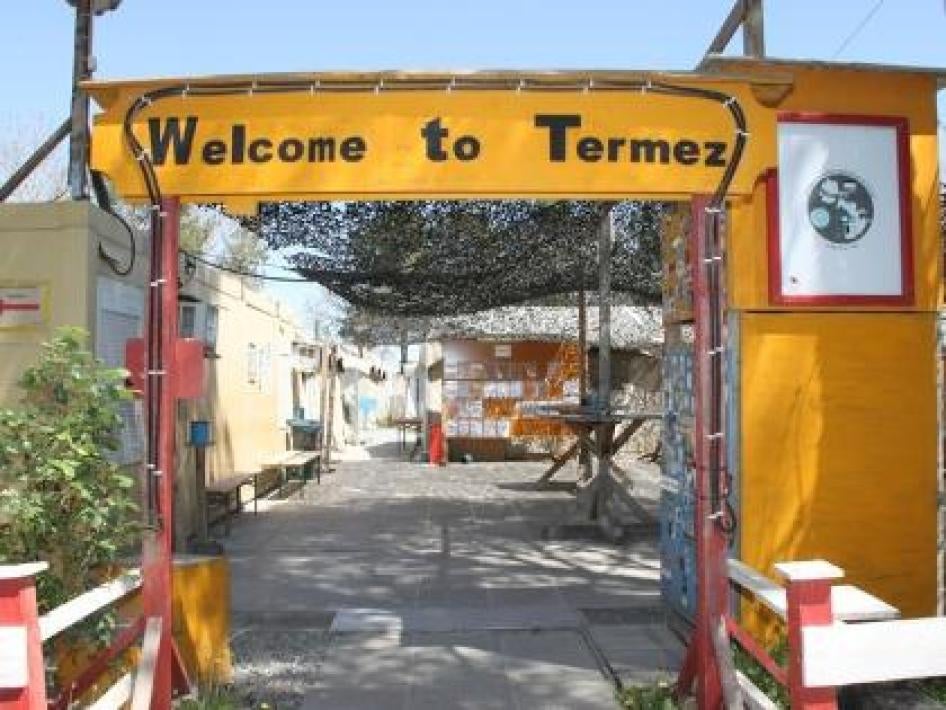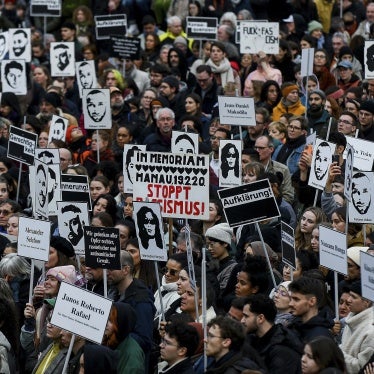Germany is ending its controversial military cooperation with Uzbekistan over the Termez airbase. Germany used the base for 13 years to transfer troops and equipment to Afghanistan, but this logistics hub is no longer necessary, according to the German military. Termez does not play a role in Germany’s plans, announced earlier in December, to extend its operations in Afghanistan.
The last German soldiers and equipment are being withdrawn from Termez by the end of December. This will end a saga during which Germany allowed post-9/11 security concerns and Afghanistan to define its policy towards Uzbekistan, which has one of the world’s worst human rights records. In 2011, for instance, my colleagues and I presented German defense officials with new evidence of the use of electric shocks, asphyxiation and other forms of detainee torture, long a problem in Uzbekistan, only to be told – again – that these abuses were less important than securing access for German troops to Afghanistan via Termez.
Germany’s calculus that human rights are secondary to security concerns did not pay off. In authoritarian Uzbekistan, disregard for human rights and rule of law fuels instability and further repression. Germany should use the opportunity presented by the end of the Termez agreement to craft a new human rights and security strategy towards Uzbekistan.
A new strategy should pressure Tashkent to end torture in custody, stop imprisoning opponents and critics, and end overwhelming restrictions on the media, independent groups, and political life. It should define transparent benchmarks to measure progress in ending abuses, and impose policy consequences if those benchmarks are not met. It should use its strong voice to persuade others to agree to international punitive measures against Tashkent unless human rights conditions improve.
There is a strong case for Germany adopting such a strategy now. Evidence on Uzbekistan presented to parliament last month by Foreign Ministry officials highlights both the urgency to act and Berlin’s leverage.
In its written answers to the Green Party’s questions about its Uzbekistan policy, as well as on the highly secretive Termez agreement, Berlin freely admits that the human rights situation in the country is terrible. In its 84 answers, Berlin also acknowledges that, with a few exceptions, conditions have either not improved, or worsened in recent years.
Germany’s current strategy has been to raise human rights issues in closed-door meetings with Uzbek officials, with the occasional public statement of concern in the United Nations, OSCE or elsewhere. But it has not sufficiently raised the price for Tashkent’s inaction on human rights. One area of recent progress – the sharp reduction in the use of child labor in the annual cotton harvest – came about when nongovernmental groups and companies mounted international pressure, backed by threats of trade and other restrictions by some governments.
Germany had more leverage on security issues during the Termez period than it was willing to use, the government’s answers show. Much of this leverage persists and should be factored into the new strategy. Berlin sees Tashkent as playing an “important role” in common efforts to tackle the drugs trade and extremism. In material terms, however, Uzbekistan has for decades been on the receiving end of major German support.
Germany admits paying Uzbekistan at least 90 million euros for the Termez base’s use and upkeep, though other accounts assert the figure is much higher. The German military also donated “paramedical” equipment, and since 1995, over 180 Uzbek soldiers have completed leadership training courses in Germany. Germany provides military training courses in Uzbekistan too, several times a year. The BKA federal crime agency runs regular counter-terrorism training courses and has donated vehicles and computer systems to Tashkent.
Uzbekistan’s leadership gains from the material benefits and prestige of such programs, and Berlin should link their continuation to Tashkent’s willingness to make real improvements on human rights.
Germany’s economic ties with Uzbekistan are very modest. Trade totaled only 517 million euros in 2014 (compared, for example, with 6.2 billion euros in German trade with Kazakhstan in the same year). However, the reasons the Foreign Ministry highlights are revealing the country’s “difficult trade and investment conditions” and widespread corruption. It notes that Uzbekistan was on “position 166 of 175” on Transparency International’s Corruption Perceptions Index in 2014. Combating corruption and improving the rule of law in Uzbekistan would certainly help German companies get a better foothold in the country.
Germany could do more to pressure Uzbekistan. It could condition any improvement in bilateral relations on real improvements in human rights. It could lead efforts in the UN Human Rights Council to establish a special rapporteur on Uzbekistan, and in the EU to revive the human rights benchmarks for Uzbekistan the bloc agreed to in 2009. Termez is shutting. For the sake of those suffering abuses, and to recognize that human security is a key to stability, Germany should not squander its opportunity for a fresh start.










